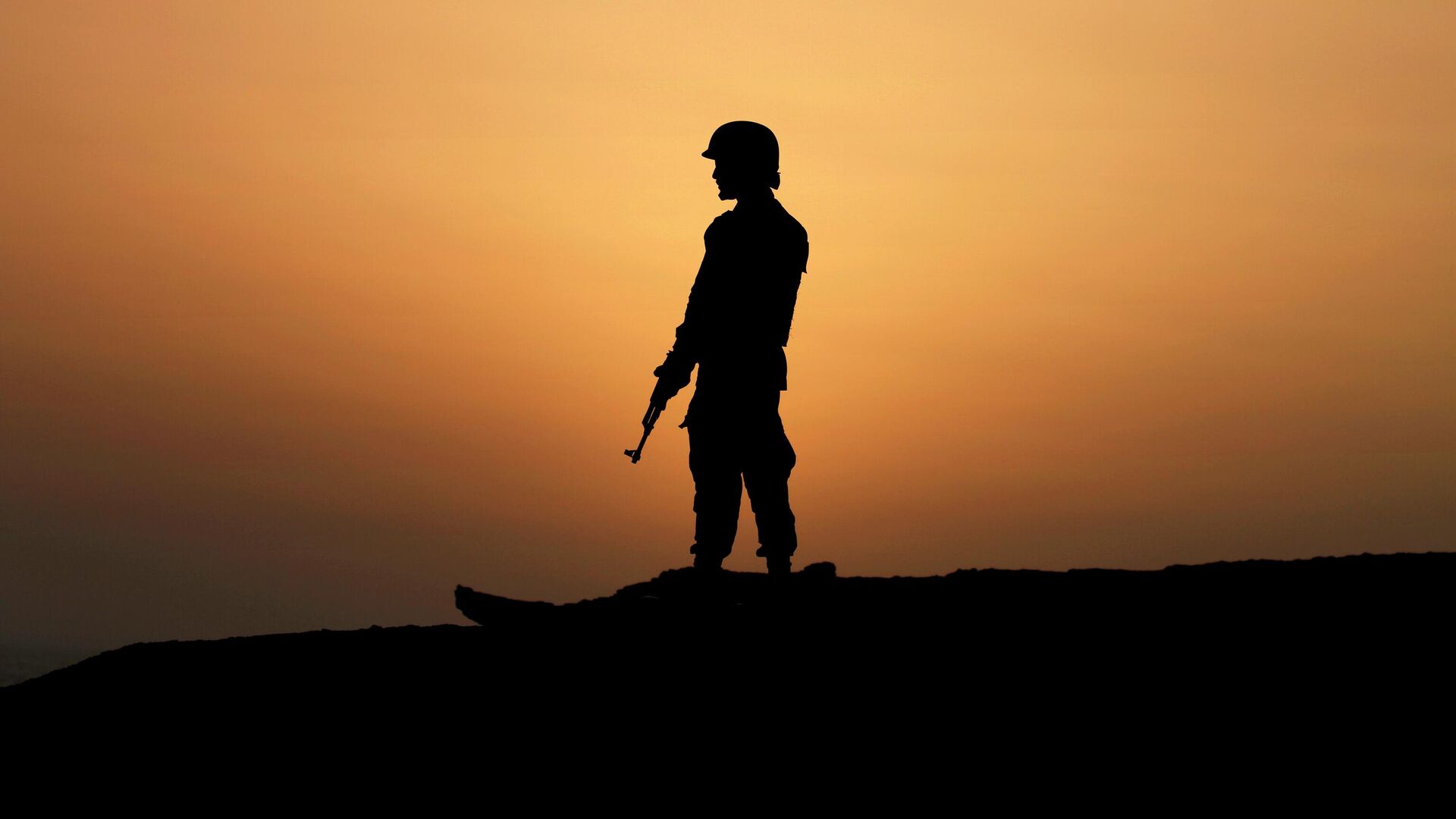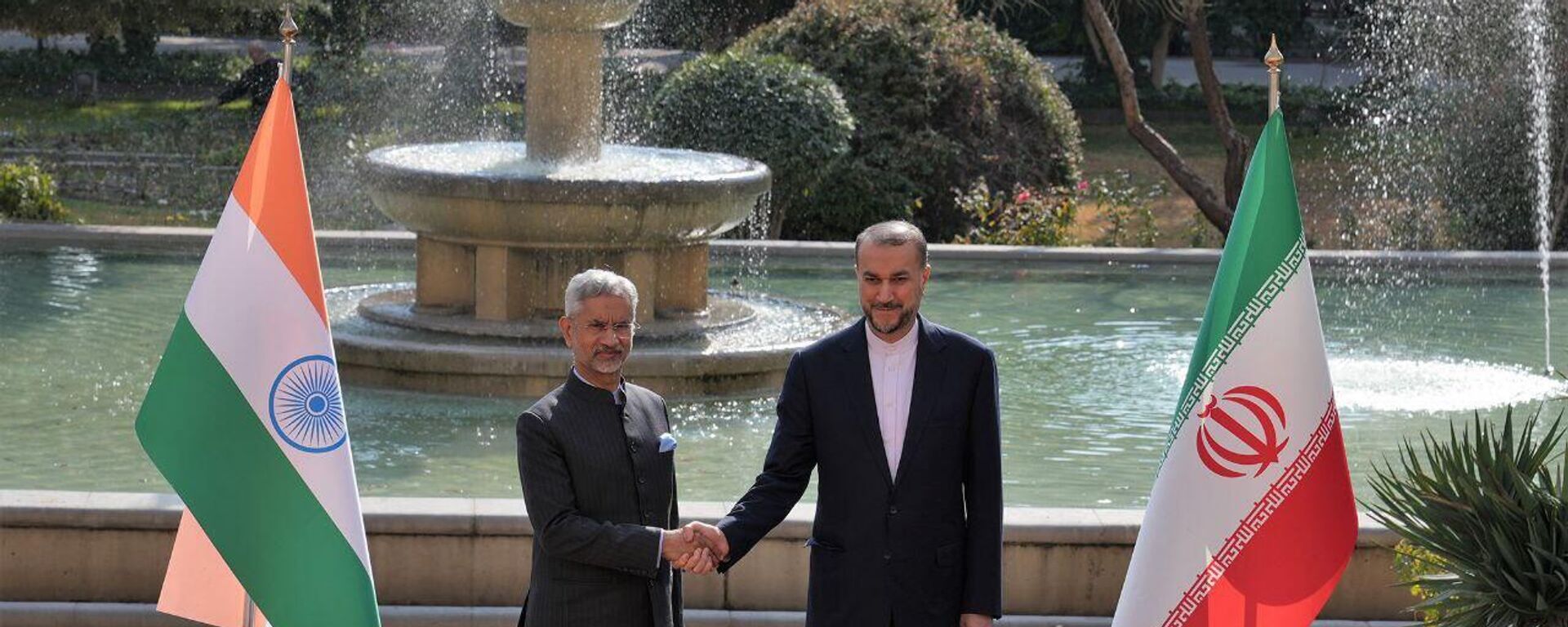https://sputniknews.in/20240119/iranian-strikes-prove-balochistan-turning-into-no-mans-land-6258376.html
Iranian Strikes Prove Balochistan Turning Into 'No Man's Land'
Iranian Strikes Prove Balochistan Turning Into 'No Man's Land'
Sputnik India
Iranian strikes in the volatile Pakistani province of Balochistan prove that the region was fast turning into a "no man's land", with Islamabad having no control whatsoever over the terrain, a geopolitics expert has said.
2024-01-19T12:32+0530
2024-01-19T12:32+0530
2024-01-19T12:32+0530
sputnik opinion
pakistan
iran
islamabad
tehran
balochistan
terror outfits
terrorism
cross-border terrorism
counter-terrorism
https://cdn1.img.sputniknews.in/img/07e6/0c/14/166411_0:320:3072:2048_1920x0_80_0_0_c7e11005170b7ea2fb54c4a07be7ca8c.jpg
Iranian strikes in the Pakistani province of Balochistan prove that the region was fast turning into a "no man's land", with Islamabad having no control whatsoever over the terrain,, a geopolitics expert has suggested.The remarks of Dr. Ashok K. Behuria, who serves as a senior fellow at India's premier defence think tank, Manohar Parrikar Institute for Defence Studies and Analyses (MP-IDSA) come amid souring of relations between the two Islamic sovereign states this week.Iranian Foreign Minister Defends His Country's Military Action Inside PakistanIran later said that its action was legitimate, given that it targeted strongholds of the terrorist organization Jaish al-Adl, with the Shia-majority sovereign state's Foreign Minister Amir-Abdollahian highlighting that no Pakistani citizen was killed in Tehran's strikes.After the Pakistani tit-for-tat, Islamabad urged Iran to show restraint and not escalate the matter further.Against this background, Behuria asserted that Pakistan doesn't have good relations with the majority of its neighbors, minus China.In his opinion, Pakistan stands isolated in the sense that it doesn't have good ties with most of these countries.Tensions Between Islamabad and Tehran to Dissipate SoonInterestingly, Behuria noted that Pakistan and Iran together managed the Baloch insurgency in the past in an area that straddles the two countries.That's why he reckoned that the current tensions between the two neighboring nations would dissipate very fast and the balance of power would be restored soon.
https://sputniknews.in/20240118/iran-tackles-terror-threat-with-india-like-surgical-strikes-6256171.html
pakistan
iran
islamabad
tehran
balochistan
south asia
middle east
Sputnik India
feedback.hindi@sputniknews.com
+74956456601
MIA „Rossiya Segodnya“
2024
Pawan Atri
https://cdn1.img.sputniknews.in/img/07e6/0c/13/139630_147:0:831:684_100x100_80_0_0_8fa2b25903e7787fe6a2698552c167df.png
Pawan Atri
https://cdn1.img.sputniknews.in/img/07e6/0c/13/139630_147:0:831:684_100x100_80_0_0_8fa2b25903e7787fe6a2698552c167df.png
News
en_IN
Sputnik India
feedback.hindi@sputniknews.com
+74956456601
MIA „Rossiya Segodnya“
Sputnik India
feedback.hindi@sputniknews.com
+74956456601
MIA „Rossiya Segodnya“
Pawan Atri
https://cdn1.img.sputniknews.in/img/07e6/0c/13/139630_147:0:831:684_100x100_80_0_0_8fa2b25903e7787fe6a2698552c167df.png
pakistan precision strikes iran, pakistan precision strikes in iran, pakistan airstrikes iran, pakistan airstrikes in iran, pakistan military action iran, pakistan military action in iran, iran missile strikes in pakistan, iran missile strikes balochistan, pakistan condemns iranian attack, pakistan foreign ministry iran attacks, pakistan expels iranian ambassador, pakistan recalls envoy from tehran, iran carries out missile strikes in pakistan, iran missile strikes in balochistan, iran missile strikes iraq, iran missile strikes syria, iran missile strikes kurdistan, iran mossad headquarters erbil, iran airstrikes iraq, houthi attacks red sea china, houthi attacks xi jinping, houthi attacks red sea jinping, yemen, us-led coalition, houthis, red sea, israel-hamas war, conflict in middle east, us strikes in yemen, us strikes iran, us strikes iraq, us strikes syria, yemen news, houthi rebels, houthi news, houthi attacks, houthi red sea attacks, houthi news today, gaza news, gaza death toll, gaza strip, oil prices, red sea attacks, houthi attacks china, houthi attacks chinese foreign ministry,
pakistan precision strikes iran, pakistan precision strikes in iran, pakistan airstrikes iran, pakistan airstrikes in iran, pakistan military action iran, pakistan military action in iran, iran missile strikes in pakistan, iran missile strikes balochistan, pakistan condemns iranian attack, pakistan foreign ministry iran attacks, pakistan expels iranian ambassador, pakistan recalls envoy from tehran, iran carries out missile strikes in pakistan, iran missile strikes in balochistan, iran missile strikes iraq, iran missile strikes syria, iran missile strikes kurdistan, iran mossad headquarters erbil, iran airstrikes iraq, houthi attacks red sea china, houthi attacks xi jinping, houthi attacks red sea jinping, yemen, us-led coalition, houthis, red sea, israel-hamas war, conflict in middle east, us strikes in yemen, us strikes iran, us strikes iraq, us strikes syria, yemen news, houthi rebels, houthi news, houthi attacks, houthi red sea attacks, houthi news today, gaza news, gaza death toll, gaza strip, oil prices, red sea attacks, houthi attacks china, houthi attacks chinese foreign ministry,
Iranian Strikes Prove Balochistan Turning Into 'No Man's Land'
Diplomatic relations between Iran and Pakistan have turned sour following Tehran's missile strikes in the neighboring country and Islamabad's subsequent counter-action inside Iranian territory.
Iranian strikes in the Pakistani province of Balochistan prove that the region was fast turning into a "no man's land", with Islamabad having no control whatsoever over the terrain,, a geopolitics expert has suggested.
The remarks of Dr. Ashok K. Behuria, who serves as a senior fellow at India's premier defence think tank, Manohar Parrikar Institute for Defence Studies and Analyses (MP-IDSA) come amid souring of relations between the two Islamic sovereign states this week.
Iranian Foreign Minister Defends His Country's Military Action Inside Pakistan
Iran later said that its action was legitimate, given that it targeted strongholds
of the terrorist organization Jaish al-Adl, with the Shia-majority sovereign state's Foreign Minister Amir-Abdollahian highlighting that no Pakistani citizen was killed in Tehran's strikes.
"We only targeted Iranian terrorists on the soil of Pakistan," Amir-Abdollahian told reporters in Davos, where he is representing the Middle Eastern country at the World Economic Forum (WEF).
After the Pakistani tit-for-tat, Islamabad urged Iran to show restraint and not escalate the matter further.
"Iran is a brotherly country and the people of Pakistan have great respect and affection for the Iranian people. We have always emphasized dialogue and cooperation in confronting common challenges including the menace of terrorism and will continue to endeavor to find joint solutions," the South Asian nation's Foreign Ministry said in a statement.
Against this background, Behuria asserted that Pakistan doesn't have good relations with the majority of its neighbors, minus China.
In his opinion, Pakistan stands isolated in the sense that it doesn't have good ties with most of these countries.
"The Southwestern part of Balochistan is rapidly turning into a no man's land. The Pakistani government's writ is being questioned day in and day out and non-state actors are coming up in a big way there," the think tanker noted.
Tensions Between Islamabad and Tehran to Dissipate Soon
Interestingly, Behuria noted that Pakistan and Iran together managed the Baloch insurgency in the past in an area that straddles the two countries.
"One could recall that before the Islamic Revolution, Iran's Shah had sent helicopters to help the Pakistan Army in tackling the Baloch insurgency in the 1970s," he added.
That's why he reckoned that the current tensions between the two neighboring nations would dissipate very fast and the balance of power
would be restored soon.
"But if Islamabad and Tehran decide to prolong it, then there will be consequences for both nations," Behuria concluded.



